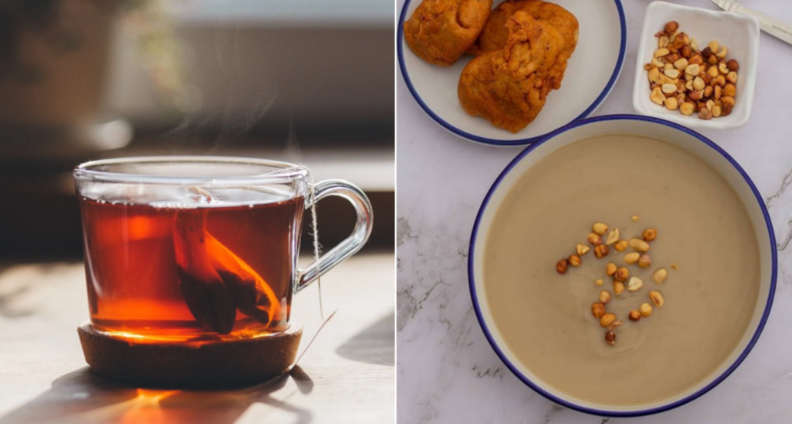Ghanaians are renowned for our love of eggs, often finding creative ways to incorporate them into our meals. Fufu and eggs have gradually become a staple in many chop bars, but tea is another popular favorite.
The nation spent an astounding $128 million importing tea in 2021, a testament to its popularity. In Ghana, tea is more than just a beverage - it's a cultural ritual, a social custom, and a way of life.

There is also a growing trend for weight reduction and "flat tummy" teas, contributing to this rising import bill.
It is no surprise that Ghana has a thriving tea culture, given the country's history as a British colony. Introduced by the British, tea customs and etiquette have seamlessly merged with Ghanaian traditions, creating a unique tea culture that blends both.

Analyzing import trends from the OEC reveals a steady climb, reaching an all-time high of $128 million in 2021, compared to $94.1 million in 2020. The accompanying graph illustrates this upward trajectory.
China dominates the supply chain, accounting for 81% of all tea imports. This heavy reliance makes the price of tea in Ghana susceptible to disruptions, such as shortages or price hikes from China, potentially impacting affordability for consumers.
The growing demand for tea in Ghana is multifaceted, driven by factors like the rising cost of breakfast beverage substitutes, the popularity of weight-related teas, and their widespread availability. This surge isn't confined to traditional black tea but encompasses a diverse range of tea products.
The intertwining of these factors underscores the profound impact on Ghana's tea culture and import bill and highlights the risks of reliance on a single source for tea.

A potential supply shortage or price hike from China could pose a challenge for individuals and the economy, as breakfast substitutes like koko and chocolate drinks become more expensive.
As the nation continues to develop, there is a need for diversification of the tea market to ensure the affordability and accessibility of tea, as well as the economic stability of the country.
Latest Stories
-
IMANI Africa takes on EC, accuses it of lying and publishing half truths
8 mins -
Manasseh Azure calls for investigation and prosecution of those responsible for GRA/SML contract
18 mins -
Kwesi Atuahene: Ghana’s health capital depends on HealthTech – Africa Center for Digital Transformation
41 mins -
13 signs your wife is planning on leaving you and you have no idea
46 mins -
IMANI Africa: Ghana’s EC’s dangerous and pathological conduct
1 hour -
If I speak there will be fire – Salah on Klopp row
2 hours -
Grieving after divorce is normal, but this particular kind of grief isn’t
2 hours -
10 beautifully unexpected ways husbands proposed to their wives
2 hours -
Reality zone with Vicky Wireko: Painting Ghana purple: Be aware, May is month of mental health awareness
2 hours -
Prof Opoku-Agyemang’s integrity is admirable – Inusah Fuseini
2 hours -
Your reign has been a beacon of wisdom – Alan Kyerematen tells Asantehene
2 hours -
Akufo-Addo’s driver wins La Dadekotopon NPP primary
2 hours -
Education Minister must channel resources to rebrand basic public schools into tackling critical needs – Minority
2 hours -
CAFCC: “Dreams need to score early to unsettle Zamalek” – Former Zamalek striker Felix Aboagye
4 hours -
GHS launches mobile app to counter misinformation about vaccines
4 hours

